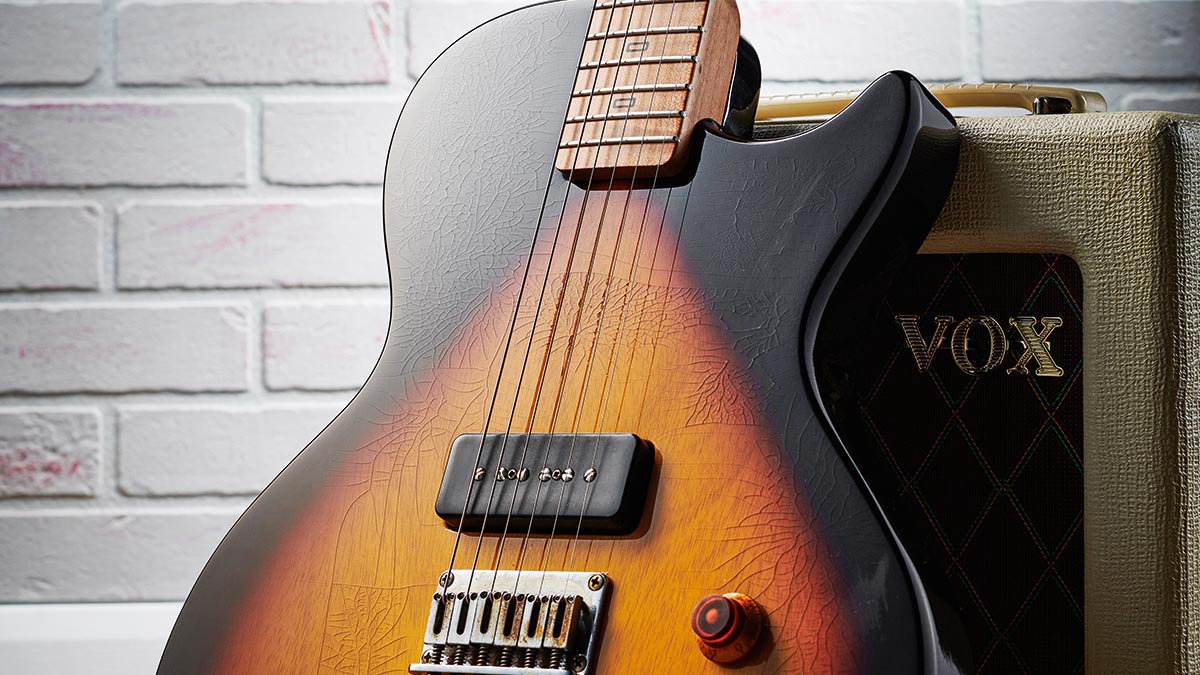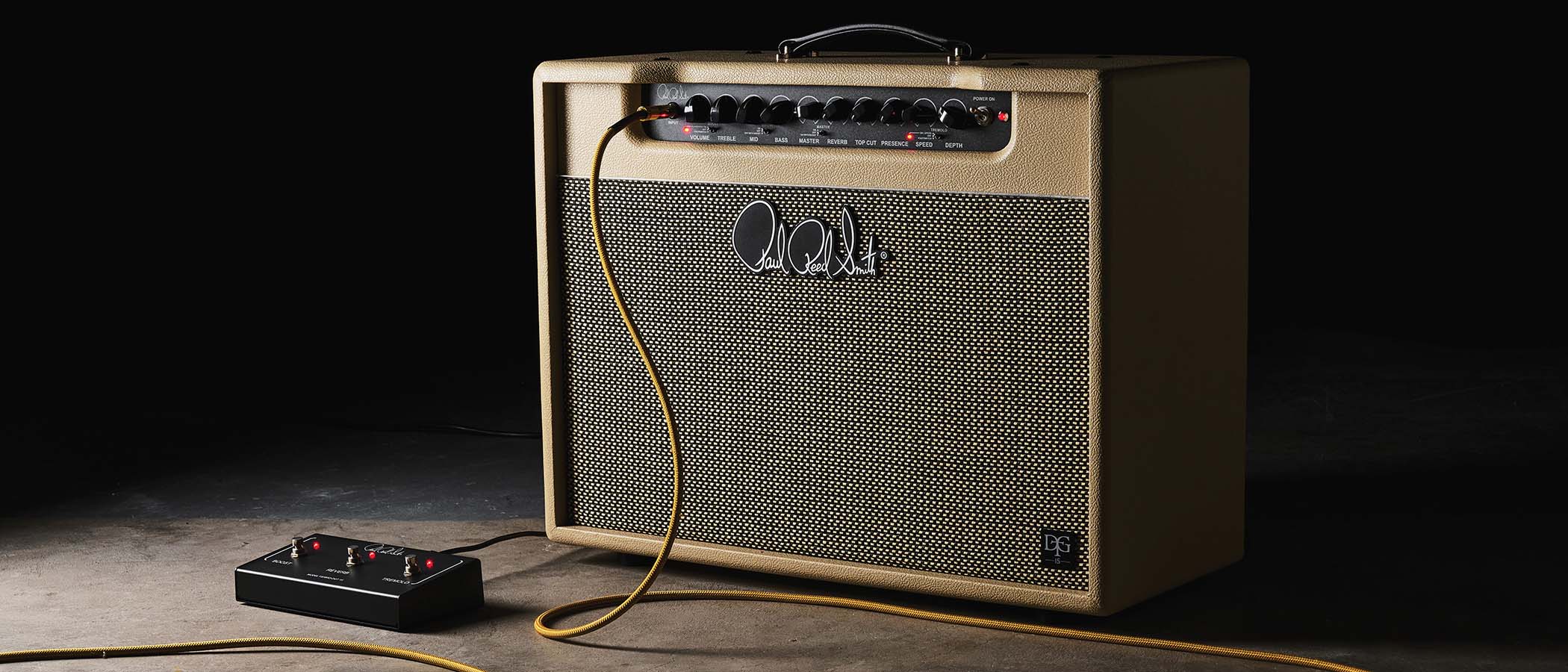Guitar World Verdict
Sound-wise, like its appearance, it’s a real Esquire-meets-Junior hybrid. A very stable working instrument and another great example of the stellar guitar craft in the UK.
Pros
- +
Simple high-quality build.
- +
Light weight; neck shape and feel.
- +
Expansive voicing from pickup.
- +
Tweakable treble bleed circuit.
Cons
- -
It’s a limited edition…
You can trust Guitar World
What is it about Gibson’s Les Paul Junior that – some 68 years on – continues to inspire both guitar makers and guitar players? For that matter, the good ol’ Fender Esquire shares an equally blue-collar appeal and vibe. Pared down with just a single pickup, both designs can be huge tone machines with a very seat-of-your-pants drive.
We’ve seen plenty of contemporary makers focusing on either of these benchmark designs, but combining the two is what’s at play with PJD’s latest electric guitar, the Carey Apprentice – a special run of just 12 pieces in either 3 Tone Tear Drop Burst, as here, or Butterscotch.
For this fast-rising UK maker, the Carey was the design that put the company on the map. While that guitar features twin pickups, typically a humbucker at the bridge with a P-90 single coil at neck, the Apprentice strips that down to one soapbar single coil. So what?
Well, anyone who’s been lucky enough to get their hands on a Carey will know that PJD’s recipe is a little unique, combining the scale length of a Fender with a Les Paul-style single-cut slab body that’s chambered and can be ordered with or without an f-hole.
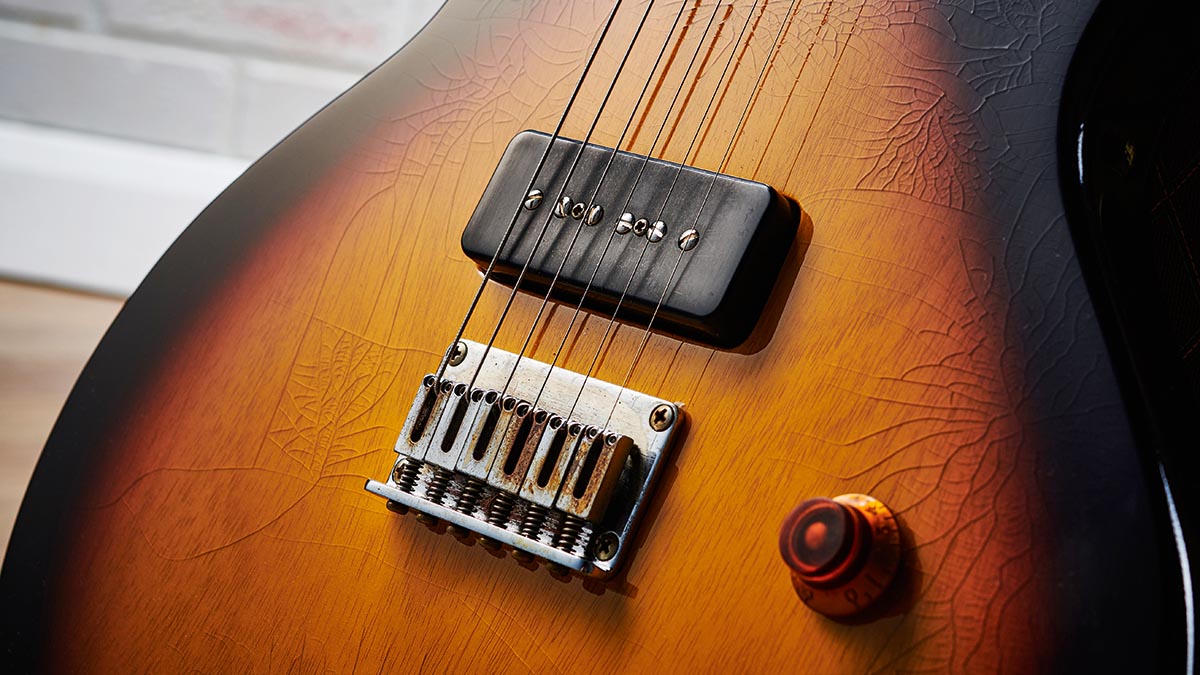
The ones we’ve played, not least the start-up Carey Standard, combine light weight with plenty of character and depth. The Carey range starts with that Standard model, which includes a logo’d Hiscox case and Cream T pickups, and is priced the same as this special run.
However, the Apprentice signals a few firsts for PJD Guitars. It’s the brand’s first single-pickup guitar and the first of its models to use obeche – solid, not chambered. There’s a new Cream T soapbar on display here, too, and the hardware, untypically, is aged.
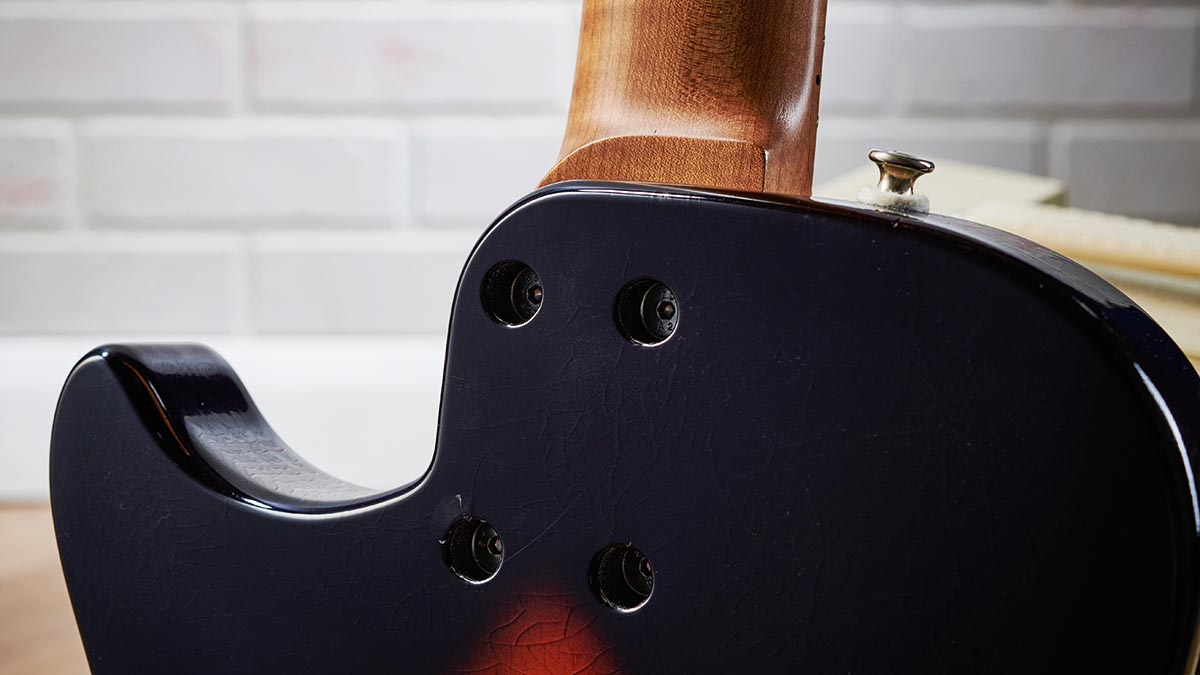
The ones we’ve played, not least the start-up Carey Standard, combine light weight with plenty of character and depth. The Carey range starts with that Standard model, which includes a logo’d Hiscox case and Cream T pickups, and is priced the same as this special run.
All the latest guitar news, interviews, lessons, reviews, deals and more, direct to your inbox!
Feel & Sounds
The Apprentice is a very vivid example of the PJD recipe, stripped back to its simple ingredients. It centres on a lightweight platform that, just like the chambered Carey Standard, has a big and ringing unplugged response. The guitar feels very alive as if the stiff, rather big neck is driving the body.
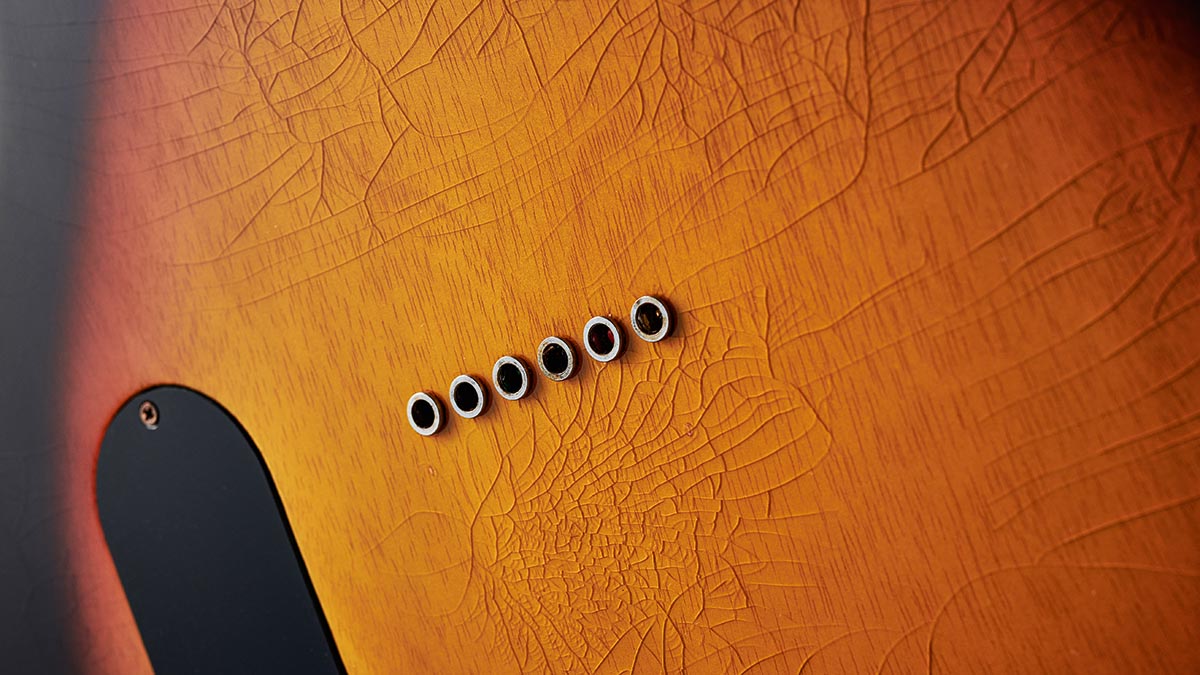
The neck has very little taper dimensionally: at the 1st fret its depth is 22.3mm and at the 12th it’s only marginally deeper at 22.9mm, although it obviously feels bigger as the neck widens out.
There’s quite a full feel to the ‘C’ shape and – combined with that subtly compound 254mm to 305mm (10- to 12-inch) radius fingerboard, medium gauge frets with a good height, not to mention the satin nitro finish on the back and face – it feels like a slightly modernised vintage Telecaster.
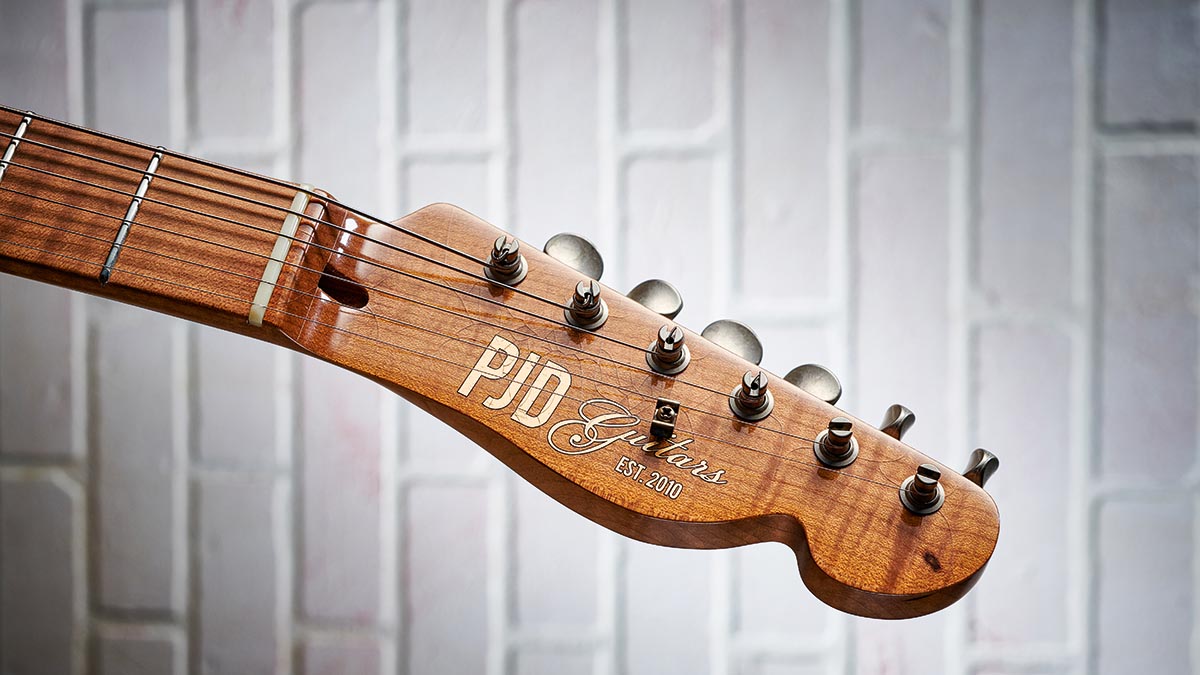
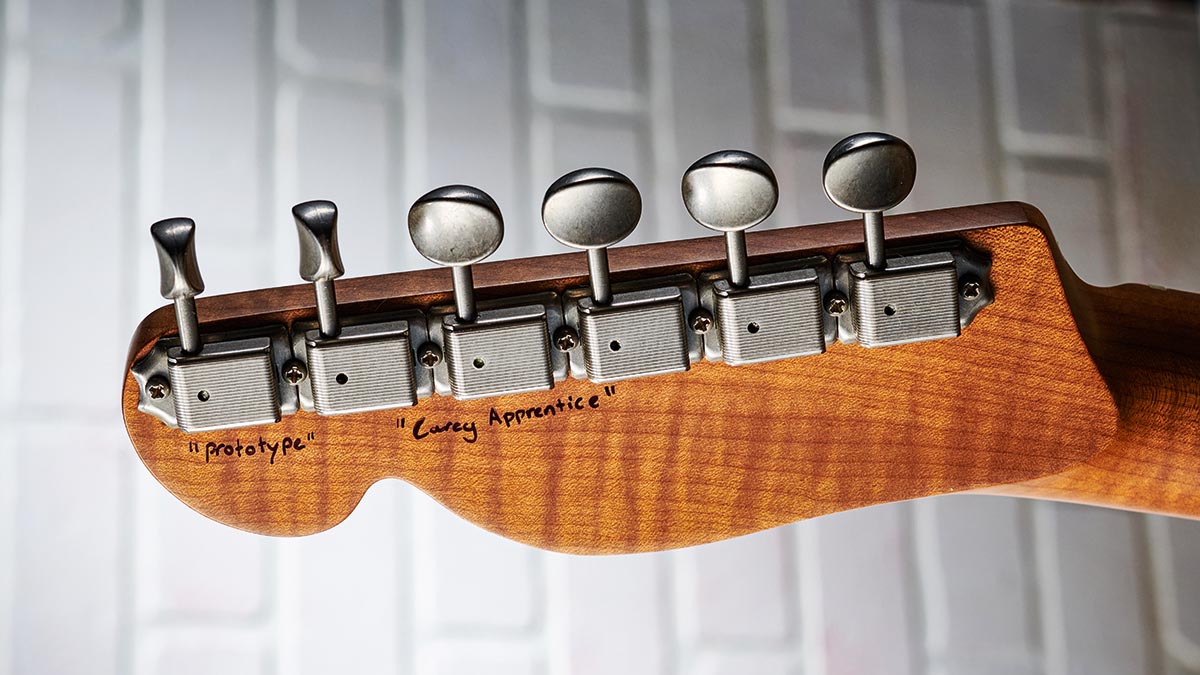
The response is subtly different from the Carey Standard, even though the character is very similar. Its modern-style wiring is very familiar and direct, though it doesn’t match our ’57 Les Paul Junior; A/B’ing the guitars, well, they’re certainly different in response.
But even in quite a dense track the PJD sounds – perceived or actually – a little more mid-scooped, as opposed to the throatier mid-pushed voice of the Junior. And yet that’s the point.
There’s a real old Tele feel at play here but with a thicker, more powerful and slightly smoother voice without losing that string separation
While the body finish and that P-90 might nod to the Junior, as we’ve said, there’s a real old Tele feel at play here but with a thicker, more powerful and slightly smoother voice without losing that string separation. It’s very responsive and yet very balanced, sound-wise.
There’s nothing one-dimensional here, which is reflected by just how well it works across the styles: stinging and snappy old‑style blues at one extreme, with big cleans that drive your pedalboard at the other, and a vibrant roots rock rhythm machine in between.
Messing with the classics will always have the purists up in arms, but when it’s done as well as this it’s hard to argue with. It’s a simple recipe that uses high-grade material and components, and is faultlessly constructed.
The light weight and neck feel really chase a vintage vibe – enhanced by the cracked nitro finish – but with none of the issues of older instruments.
Specs
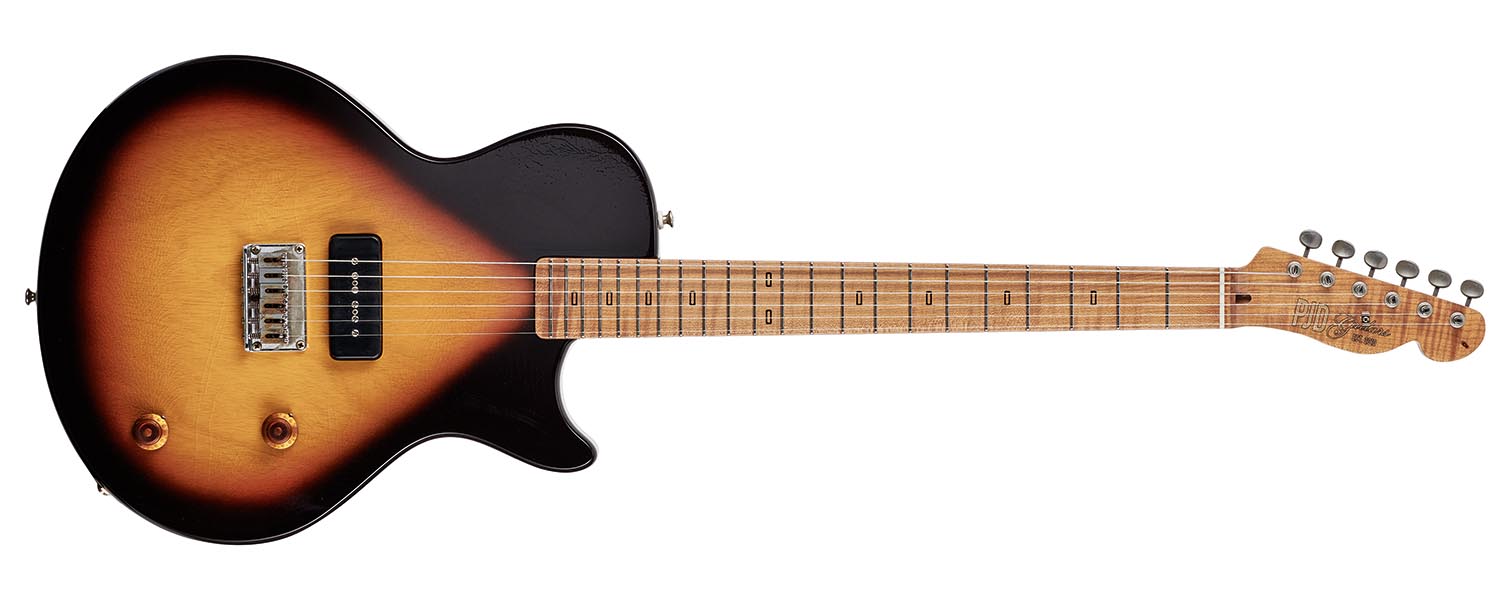
- PRICE: £1,950 (inc case)
- ORIGIN: UK
- TYPE: Single-cut, solidbody electric
- BODY: Obeche
- NECK: Quarter-sawn roasted 3A figured maple, standard C profile, bolt-on
- SCALE LENGTH: 648mm (25.5”)
- NUT/WIDTH: Bone/43mm
- FINGERBOARD: Quarter-sawn roasted 3A figured maple, rectangular acrylic inlays, compound 254-305mm (10-12”) radius
- FRETS: 22, medium (Jescar FW55090)
- HARDWARE: Gotoh Strat-style hardtail bridge with block steel saddles and through-body stringing, vintage-style split-post tuners – aged nickel-plated
- STRING SPACING, BRIDGE: 52.5mm
- ELECTRICS: Cream T Apprentice 59 P90 soapbar single coil, volume with Mars-Tronic Treblemaker and tone control
- WEIGHT (kg/lb): 2.88/6.34
- OPTIONS: Finish only
- RANGE OPTIONS: Carey Standard (£1,950), Carey Elite (£2,399) and Carey Limited (£2,699)
- LEFT-HANDERS: To order, £1,950
- FINISHES: 3 Tone Tear Drop Burst (as reviewed), Butterscotch Blonde – high-gloss aged nitro to body and headstock face; satin nitro to neck back
- CONTACT: PJD Guitars

Dave Burrluck is one of the world’s most experienced guitar journalists, who started writing back in the '80s for International Musician and Recording World, co-founded The Guitar Magazine and has been the Gear Reviews Editor of Guitarist magazine for the past two decades. Along the way, Dave has been the sole author of The PRS Guitar Book and The Player's Guide to Guitar Maintenance as well as contributing to numerous other books on the electric guitar. Dave is an active gigging and recording musician and still finds time to make, repair and mod guitars, not least for Guitarist’s The Mod Squad.
